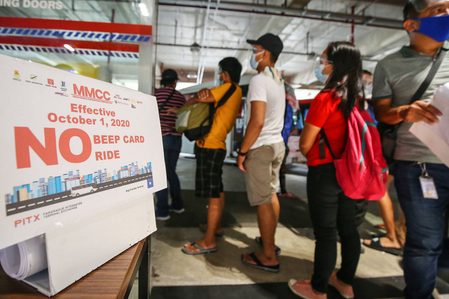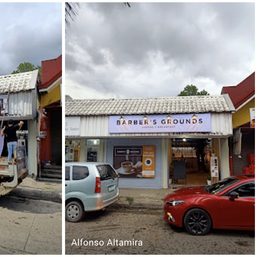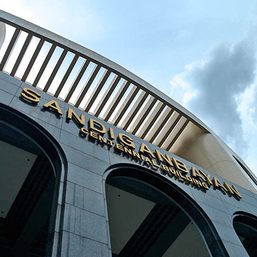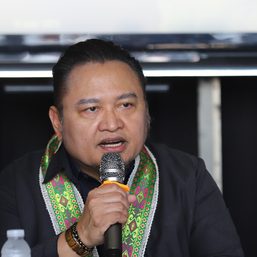SUMMARY
This is AI generated summarization, which may have errors. For context, always refer to the full article.
![[OPINION] COVID Capitalism: Online fees and unfair practices during a pandemic](https://www.rappler.com/tachyon/2020/10/covid-capitalism-640.jpg)
Some of our staff couldn’t get to work last week. They didn’t have P180 to buy Beep cards to commute. Then I saw colleagues posting on the re-imposition of online transaction fees by two Big Banks. While other banks did not choose to go along, the size of the two Banks left a huge segment of Filipinos little choice. In a statement calling for a suspension of these fees, Senator Angara revealed that these entities pushed forward despite an appeal by the BSP. As the day progressed, releases indicated that the companies’ defense was to invoke their “valid contracts” with the government and consumers.
These two incidents are faces of what I’d come to refer as “COVID Capitalism” – the dogged adherence to capitalist dogma with little regard to the plight of consumers even during the harshest of times. We keep saying this pandemic does not affect us equally, yet we didn’t have examples to fully grasp that. Now we do: workers forced to walk from Monumento to Cubao; the nurse, whose pay became even smaller because of online fees; and former ABS-CBN employees (now “online sellers”) whose meager profit is reduced by P20 per transaction. Contrast these stories against the 2020 reports of some companies. Yes, they took a hit, but in their case, “poorer” means raking in P1 billion instead of 2 or 3.
COVID Capitalism didn’t spare struggling governments. Consider – the BSP pushed online transactions to reduce physical interactions. The DOTR was similarly motivated in pursuing cashless payments in the transportation network. Unfortunately, the sudden onset of fees and expensive cards made it seem to the public that both government agencies were unwitting marketing agents of these corporations. After all, government-enforced lockdowns fueled their market growth and capture.
More to the point, when the lockdowns first came, companies invoked “force majeure” to relieve them from their obligations to the public. The government agreed, like when it suspended some of the Competition Commission’s powers under Bayanihan Act 2. For banks, as early as March 16, BSP Governor Diokno announced a package of regulatory relief measures in the hopes that it “will encourage our supervised FIs to provide financial relief to their retail customers, corporate clients, and employees affected by the outbreak of the COVID-2019.” Ironically, today we see them strictly insist on their contracts against consumers, at a time when “every peso saved goes a long way” as Sen. Angara said.
It may very well be that the owners of these companies do not wish to intentionally inflict hardship. Still one hopes that they keep keener eyes on their gatekeepers. Because these incidents communicate an unseemly rush to monetize or take profits during and in spite of a pandemic. Digital transformation is meant to pay off, but not immediately, and certainly not right now. There is no reason to rush profit-taking in a growing segment – especially when everyone is suffering. Big Business must realize that the public will measure them in terms of how much profit they are willing to defer (take note: delay, NOT waive) at this time, and not by the comparatively small “donations” they throw at the masses and boast about in press releases.
We were supposed to “Heal as One,” but when billionaires to whom P50 is nothing exact the same amount from thousands to whom it is a day’s worth of food, one sees a broken system. And if a government that is already at its limit cannot count on the big players to participate in a meaningful fashion, then it might be time to refocus financial relief packages directly to small businesses (MSMEs). The country would be better served if we redirect those funds largely to those who actually need it to survive, and not to those whose goal is to maintain their investors’ profit targets.
Fundamentally, fighting COVID Capitalism requires that we disentangle ourselves from policies premised on corporations’ “enlightened self-interest” – those that depend on the benevolent nature of conglomerates to “pay back” after a government helps them. Consider the Senate’s FIST Bill (SB 1849). It hopes that if you give banks even more concessions (or funds), they will turn around and help small businesses. Senator Grace Poe described the Bill this way: “Before the banks can help MSMEs, we must help the banks first.” However, after 8 months, there is mounting evidence – largely from the US’ COVID relief experience – showing why reliance on “trickle down” economics doesn’t pay off. Just ask the BSP who just issued yet another “encouragement” (Monetary Board Resolution 1181) for banks last Sept 17, only to be dismayed by last week’s “online fees” announcements.
All this perhaps led Pope Francis to denounce capitalism for “failing humanity” during COVID in his new encyclical: “There is little appreciation of the fact that the alleged ‘spillover’ does not resolve the inequality that gives rise to new forms of violence threatening the fabric of society.” One hopes that our legislators will reflect on this and on recent events, then re-evaluate whether generosity is a strategy worth keeping when it continues to appear one-sided.
As for the immediate concern, a legal framework exists if “moral suasion” continues to fail. First, these fees are primarily “convenience charges.” In a pandemic where health considerations and the government itself has restricted movements, online transactions became a “necessity,” not a luxury. And in a mandatory online ecosystem (whose growth is fueled and driven by government), regulators are allowed to inquire if insisting on fees borders on predatory. Second, the fees encourage people to flout government restrictions. Invariably, the phrases “general welfare” and “public health” slide within reach of regulators. Third, some digital transformation experts connect fees to poorly designed IT ecosystems. Since some banks can afford to do business without these fees, it is a fair question for regulators if they are really justified or is the public being made to shoulder inefficiency costs. Finally, if companies insist on contracts as a barrier, then those contracts should be re-evaluated against the concessions they have asked from the government. “Force majuere” works both ways.
There is a universe of solutions to a government with the political will (such as this one). Initiatives like the FIST Bill can be dialed down, while those with provisions directly helping MSMEs – like the CREATE Bill (tax relief to small businesses) – can take priority. It is good that the current DOTR is taking prudent steps to unwind the mess they were left with. Still, other regulators like the PCC can take the lead.
There is no better time to demonstrate to the public the “real” effects of good competition law than now. If we really are all in this together, then everyone must feel some level of commensurate pain, not just commuters or consumers. The parable of the Poor Widow’s Offering comes to mind (Luke 20:45-21:4). Within this context, it is equally important to recognize those who meaningfully contribute, such as the banks who didn’t impose fees, especially those that suspended them indefinitely; the supermarkets that extend hours or allot preferred lanes to healthworkers; and the small and medium businesses that are struggling mightily to keep their people employed.
Then there’s Ramon Ang. Say what you will but, when he converted gin factories (cash cows) to produce ethyl alcohol for free, he earned a nation’s respect. Which is also why when he says things like, “Lahat sila kumikita sa gobyerno, lahat sila kumikita sa bayan, pero puro pakitang tao,” we should take note. Because when this is all over, those who unduly profited from the suffering of millions, politician or oligarch, must be held to account. – Rappler.com
John Molo is a commercial law litigator who enjoys reading and learning about the Constitution and its intersection with politics. He teaches Constitutional Law at UP Law-BGC, where he also chairs the Political Law Cluster of the Faculty. He is the President of the Harvard Law School Association of the Philippines, and a past Chairman of the IBP Law Journal. He led the team that sued the Aquino administration and invalidated the PDAF.
Add a comment
How does this make you feel?




![[Vantage Point] Why are more ‘frentrepreneurs’ betting on franchising?](https://www.rappler.com/tachyon/2022/10/Why-are-more-%E2%80%98Frentrepreneurs-betting-on-franchising.jpg?resize=257%2C257&crop=142px%2C0px%2C900px%2C900px)









![[Time Trowel] Evolution and the sneakiness of COVID](https://www.rappler.com/tachyon/2024/02/tl-evolution-covid.jpg?resize=257%2C257&crop=455px%2C0px%2C1080px%2C1080px)


There are no comments yet. Add your comment to start the conversation.